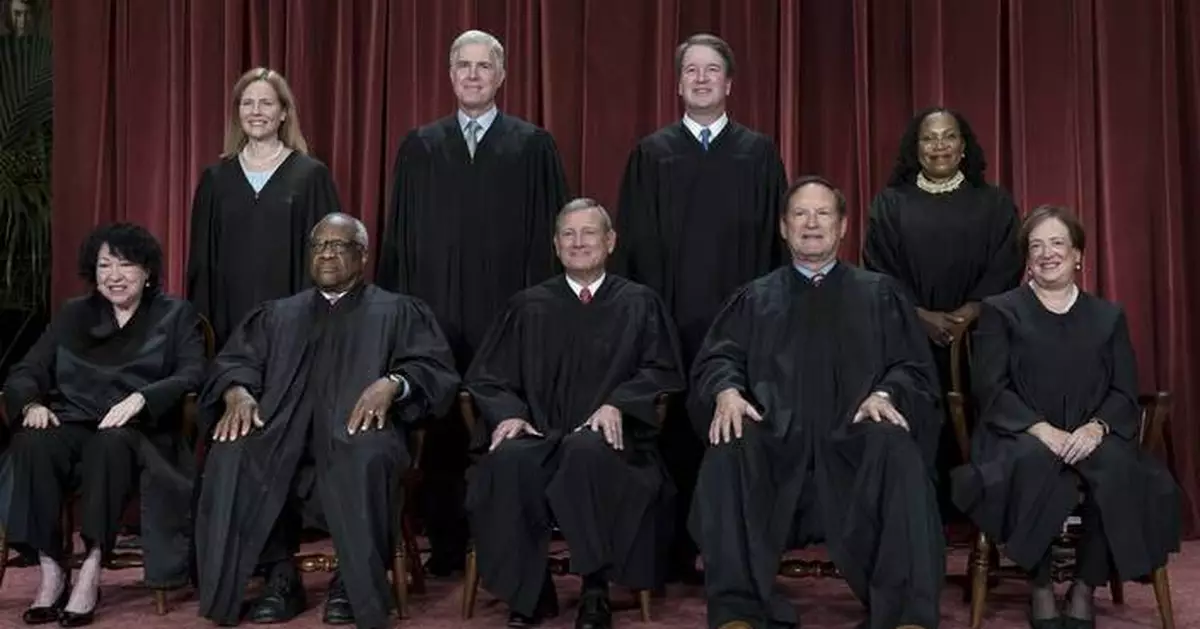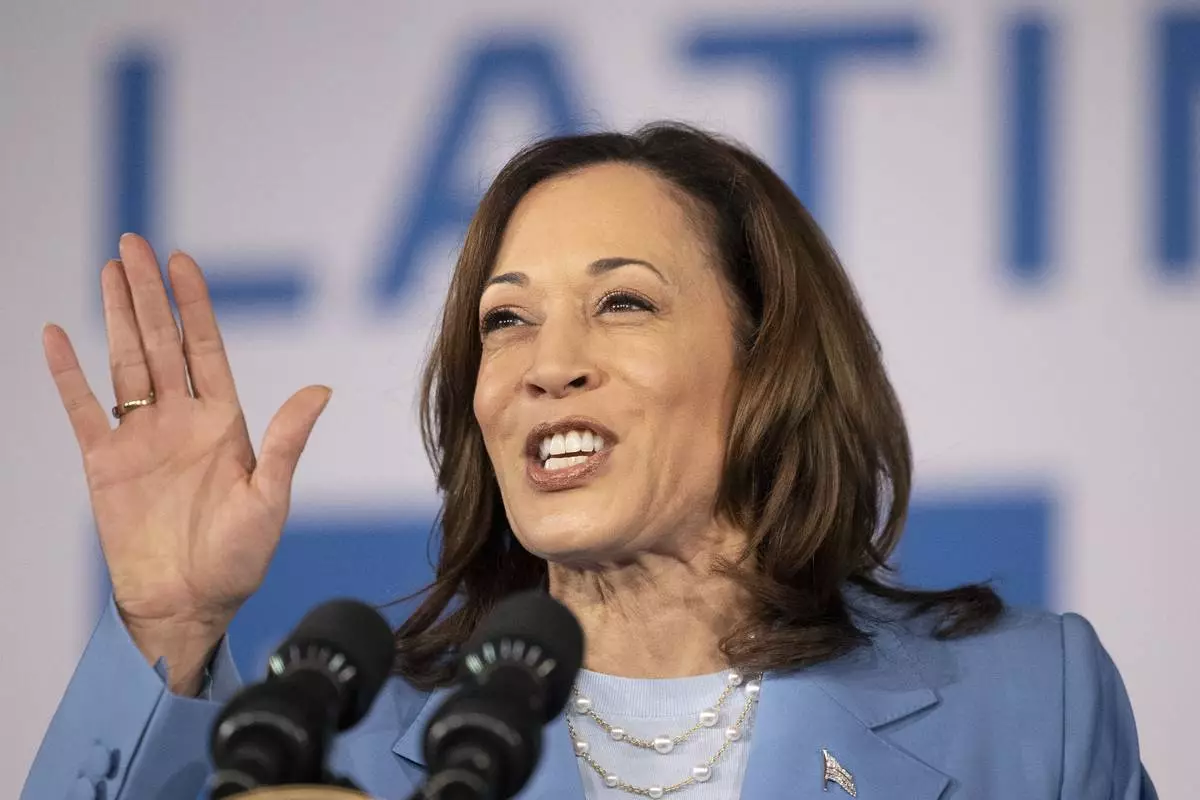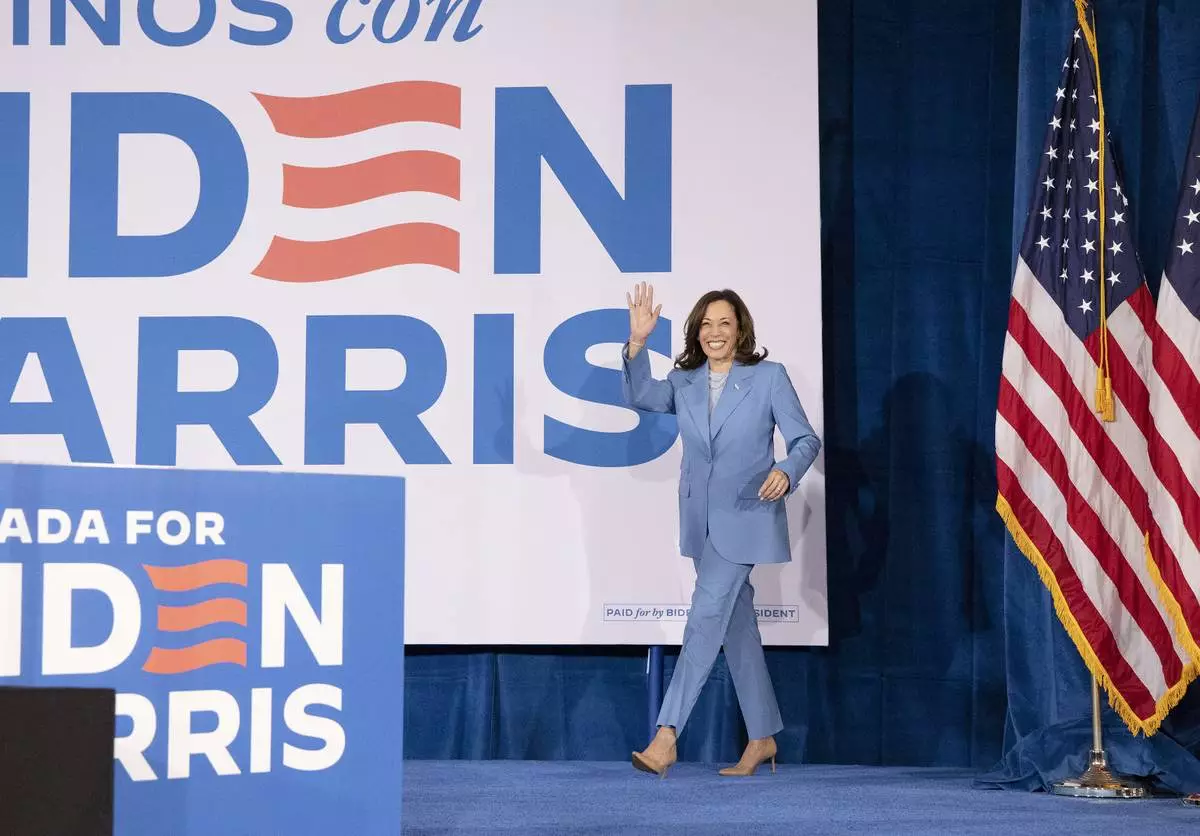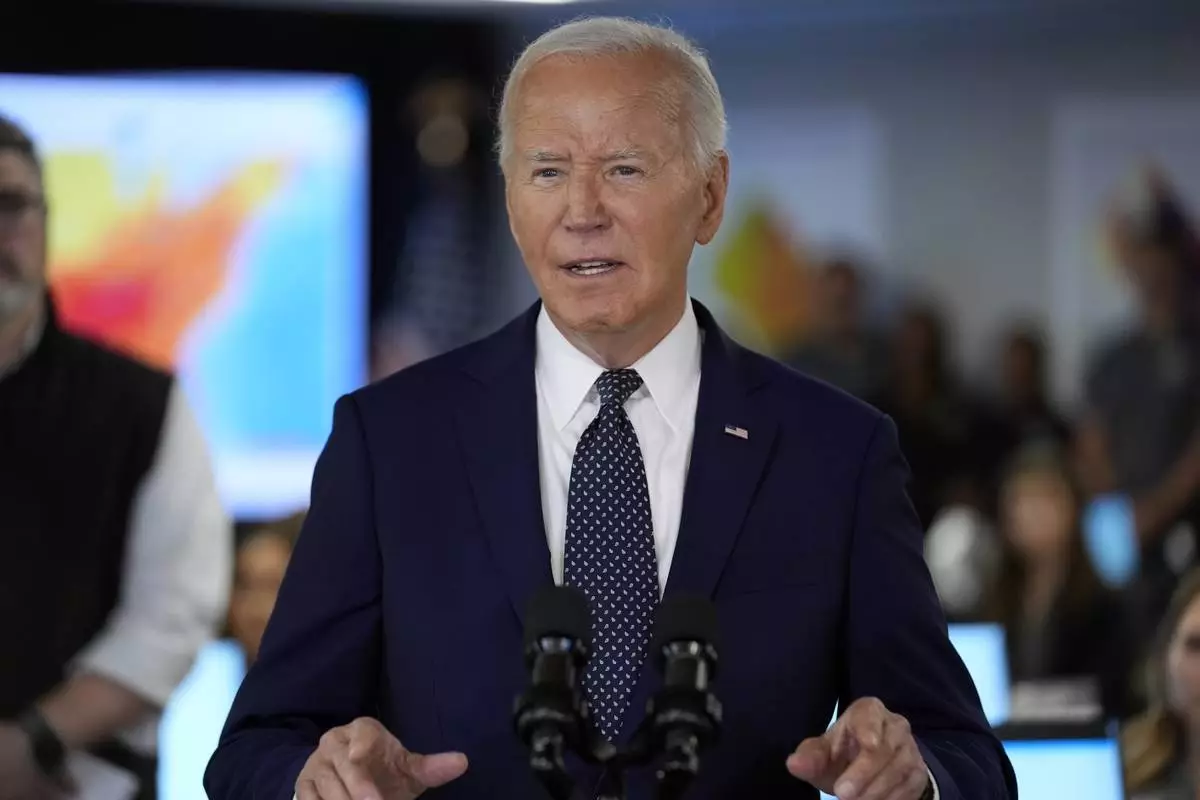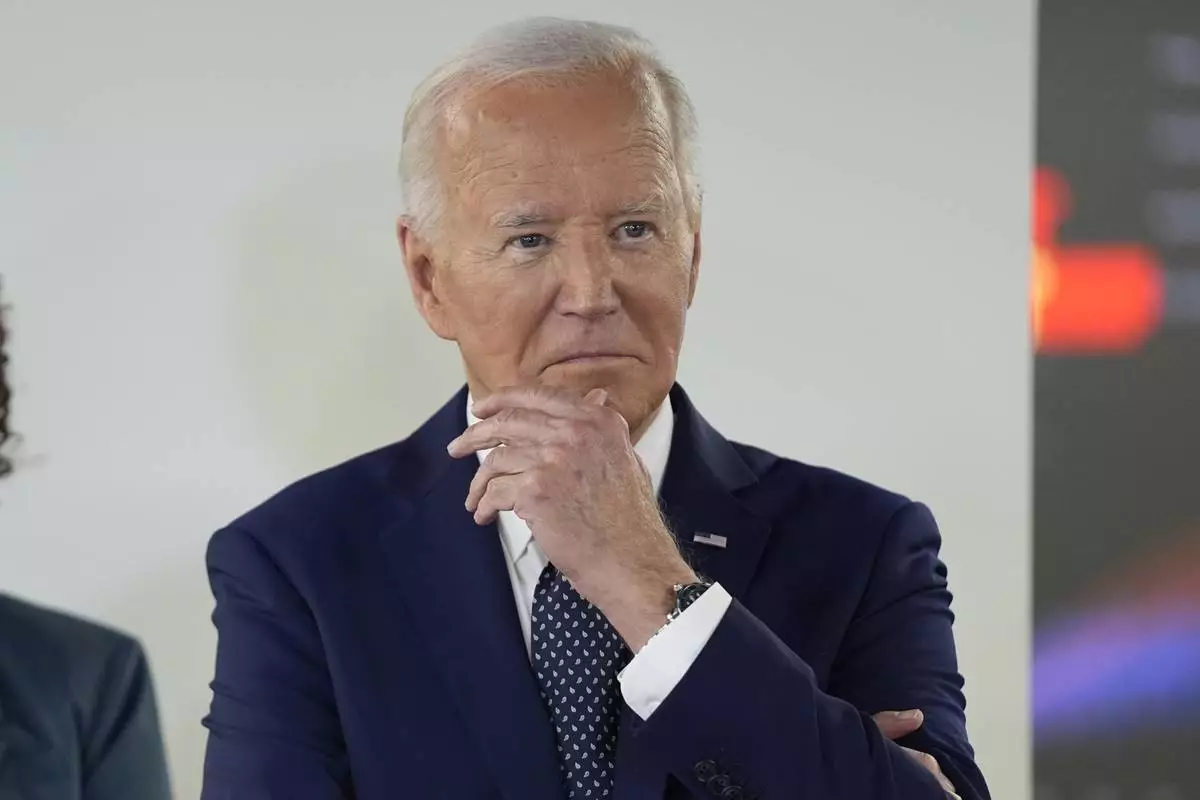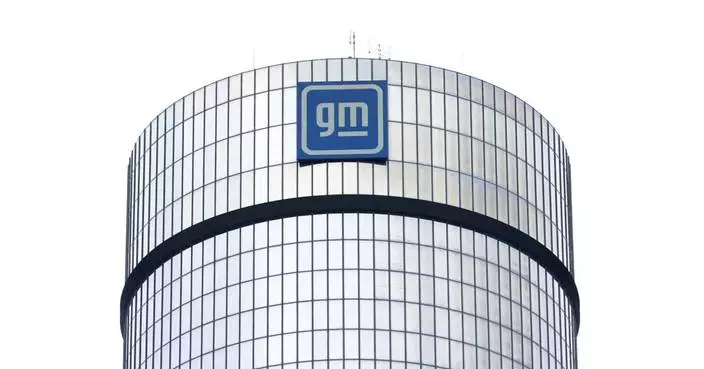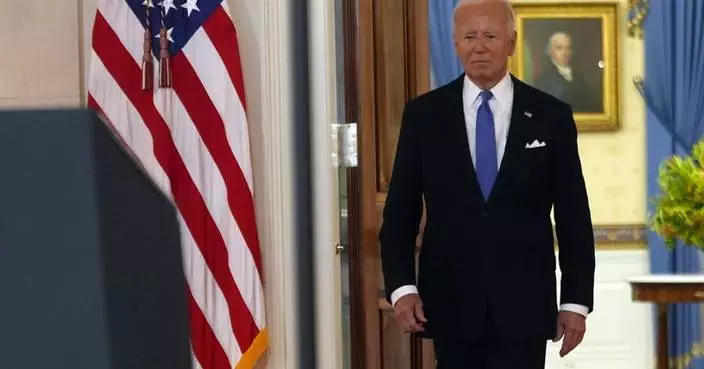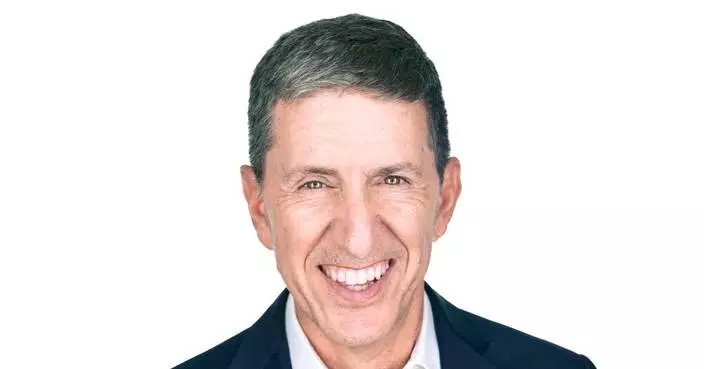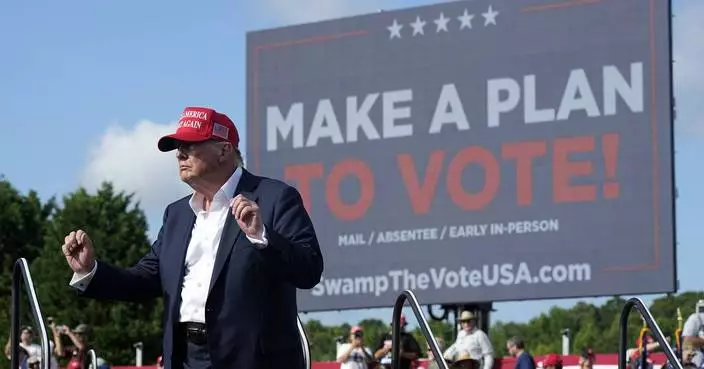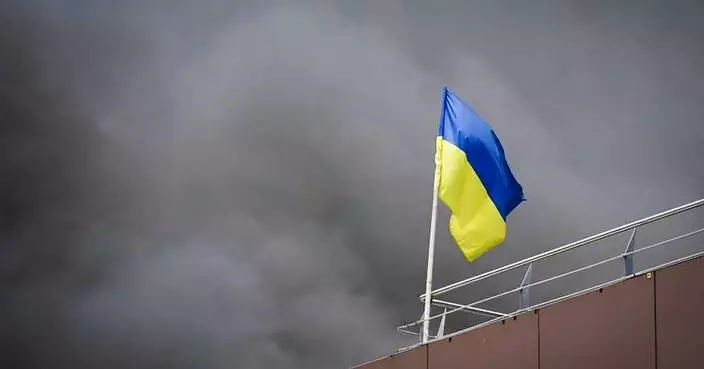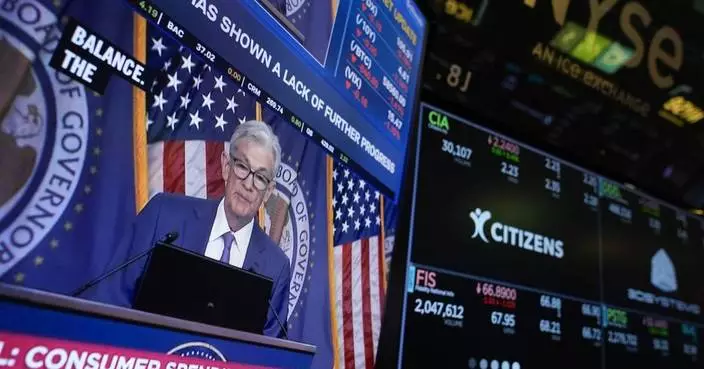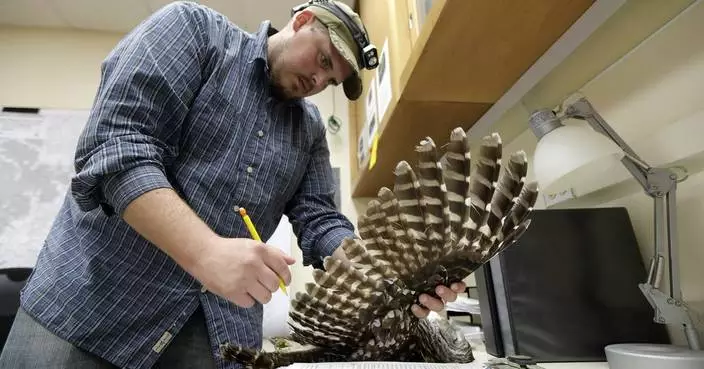WASHINGTON (AP) — The Supreme Court's ruling Monday in former President Donald Trump's 2020 election interference case makes it all but certain that the Republican will not face trial in Washington ahead of the November election.
The Supreme Court did not dismiss — as Trump had wanted — the indictment alleging he illegally schemed to cling to power after he lost to President Joe Biden. But the ruling still amounts to a major victory for the presumptive Republican presidential nominee, whose legal strategy has focused on delaying the proceedings until after the election.
The timing of the trial matters because if Trump defeats Biden, he could appoint an attorney general who would seek the dismissal of this case and the other federal prosecutions he faces. Or Trump could potentially order a pardon for himself.
Trump posted in all capital letters on his social media network shortly after the decision was released: “BIG WIN FOR OUR CONSTITUTION AND DEMOCRACY. PROUD TO BE AN AMERICAN!”
In remarks Monday evening, Biden said the court had done a “terrible disservice” to the American people, who he says deserved to know the outcome of the case before they head to the polls.
“The American people will have to render a judgment about Donald Trump's behavior," Biden said. “The American people must decide whether Trump's assault on our democracy on Jan. 6 makes him unfit for public office.”
Here's a look at the ruling and what comes next:
The court’s conservative majority said former presidents have absolute immunity from prosecution for official acts that fall within their “exclusive sphere of constitutional authority" and are presumptively entitled to immunity for all official acts. They do not enjoy immunity for unofficial, or private, actions.
The ruling means that special counsel Jack Smith cannot proceed with significant allegations in the indictment — or must at least defend their use in future proceedings before the trial judge.
The justices, for instance, wiped out Smith’s use of allegations that Trump tried to use the investigative power of the Justice Department to undo the election results, holding that his communications with agency officials is plainly protected from prosecution.
The justices sent the case back to U.S. District Judge Tanya Chutkan, who must now “carefully analyze” whether other allegations involve official conduct for which the president would be immune from prosecution.
Among the issues for further analysis is Trump’s relentless badgering of then-Vice President Mike Pence to not certify the electoral votes on Jan. 6, 2021. The justices said it was “ultimately the Government’s burden to rebut the presumption of immunity” in Trump’s interactions with Pence.
The order also directed additional analysis on the various posts on X, then known as Twitter, that Trump made — as well as a speech he delivered to supporters — in the run-up to the riot at the U.S. Capitol. Determining whether that communication represents official versus unofficial acts, the justices said, “may depend on the content and context of each" and thus needs more scrutiny.
The justices required fresh fact-finding on one of the more stunning allegations in the indictment — that Trump had participated in a scheme orchestrated by allies to enlist slates of fraudulent electors in battleground states won by Biden who would falsely attest that Trump had won in those states.
The Trump team had argued that the selection of alternate electors was in keeping with Trump’s presidential interest in the integrity and proper administration of the federal elections and cited as precedent an episode he said took place in the disputed election in 1876.
The Smith team, by contrast, portrayed the scheme as a purely private action that implicated no presidential responsibility.
The conservative justices in their majority opinion didn’t answer the question as to which side was right, instead saying that “determining whose characterization may be correct, and with respect to which conduct, requires a close analysis of the indictment’s extensive and interrelated allegations.”
Unlike Trump’s interactions with the Justice Department, the justices said, “this alleged conduct cannot be neatly categorized as falling within a particular Presidential function. The necessary analysis is instead fact specific, requiring assessment of numerous alleged interactions with a wide variety of state officials and private persons.”
The three liberal justices — Sonia Sotomayor, Elena Kagan and Ketanji Brown Jackson — sharply criticized the majority’s opinion in scathing dissents. Sotomayor gave a dramatic speech as she read her dissent from the bench, at times shaking her head and gritting her teeth as she said the conservative majority wrongly insulated the U.S. president as “a king above the law.”
“Ironic isn’t it? The man in charge of enforcing laws can now just break them," Sotomayor said.
The dissenting justices said the majority decision makes presidents immune from prosecution for acts such as ordering Navy seals to assassinate a political rival, organizing a military coup to hold onto power or accepting a bribe in exchange for a pardon.
“Even if these nightmare scenarios never play out, and I pray they never do, the damage has been done. The relationship between the President and the people he serves has shifted irrevocably. In every use of official power, the President is now a king above the law,” Sotomayor wrote.
In a separate dissenting opinion, Jackson said the majority’s ruling “breaks new and dangerous ground.”
“Stated simply: The Court has now declared for the first time in history that the most powerful official in the United States can (under circumstances yet to be fully determined) become a law unto himself,” Jackson wrote.
The majority opinion accused the liberal justices of “fear mongering” and striking a “tone of chilling doom that is wholly disproportionate to what the court actually does today.”
The case will now go back to Chutkan. The trial was supposed to have begun in March, but the case has been on hold since December to allow Trump to pursue his appeal. Chutkan had indicated at that time she would likely give the two sides at least three months to get ready for trial once the case returns to her court.
That had left the door open to the case potentially going to trial before the election if the Supreme Court — like the lower courts — had ruled that Trump was not immune from prosecution.
But the Supreme Court's ruling that Chutkan must conduct further analysis is expected tie the case up for months with legal wrangling over whether the actions in the indictment were official or unofficial.
Trump was convicted in May of 34 felony counts in his hush money trial in New York and is scheduled to be sentenced on July 11. The falsifying business records charges are punishable by up to four years behind bars, but there's no guarantee Trump will get prison time. Other possibilities include fines or probation.
It seems almost certain that Trump's two other criminal cases will not go to trial before the election.
An appeals court recently halted Trump's Georgia 2020 election interference case while it reviews the lower court judge’s ruling allowing Fulton County District Attorney Fani Willis to remain on the case. No trial date had been set in that case. Trump's lawyers have asserted presidential immunity in that case, though there's been no ruling.
Trump was supposed to stand trial starting in May in the other case brought by Smith, over classified documents found at Trump's Mar-a-Lago estate after he left the White House. But U.S. District Judge Aileen Cannon canceled the trial date as the case got bogged down with legal issues. She has yet to schedule a new one. That case, too, involves a claim by the Trump team of immunity that prosecutors have disputed.
Last week, Cannon set the stage further delays by agreeing to revisit a ruling by another judge that permitted crucial evidence related to allegations of obstruction of justice by Trump to be introduced into the case.
One of the arguments Cannon has entertained — that Smith was illegally appointed and that the case should be dismissed — got little traction with the Supreme Court.
A separate concurrence from Justice Clarence Thomas concluded that Smith's appointment was improper, but no other justice signed onto that.
Associated Press reporters Michelle L. Price in New York, Kate Brumback in Atlanta and Stephen Groves in Washington contributed.
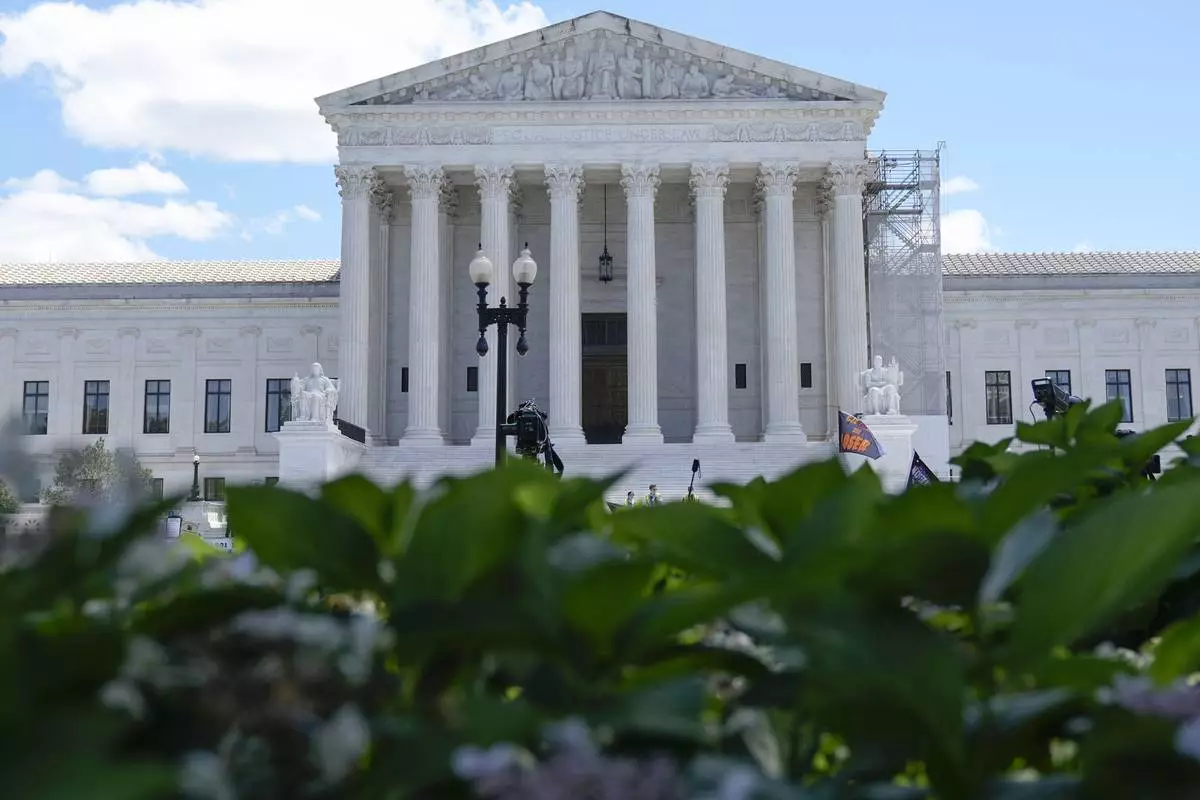
The Supreme Court is seen Monday, July 1, 2024, in Washington. (AP Photo/Mariam Zuhaib)
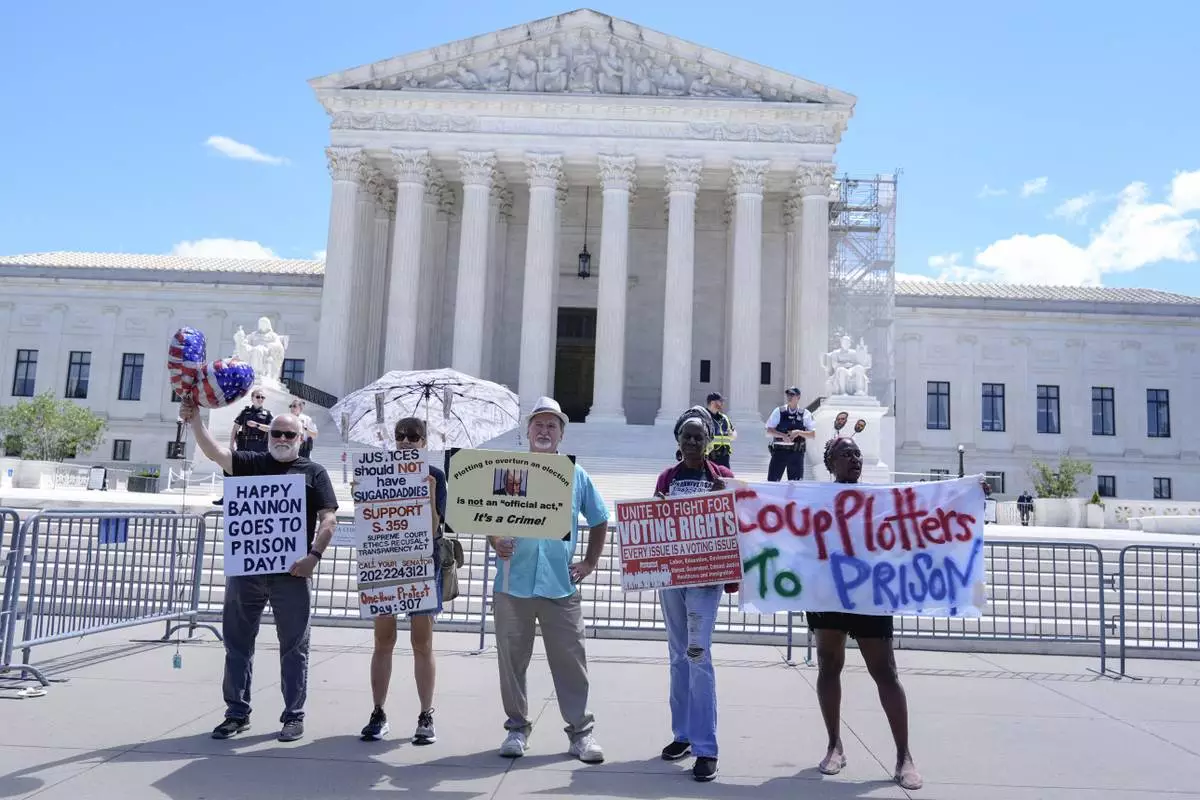
People protest outside the Supreme Court Monday, July 1, 2024, in Washington. (AP Photo/Mariam Zuhaib)
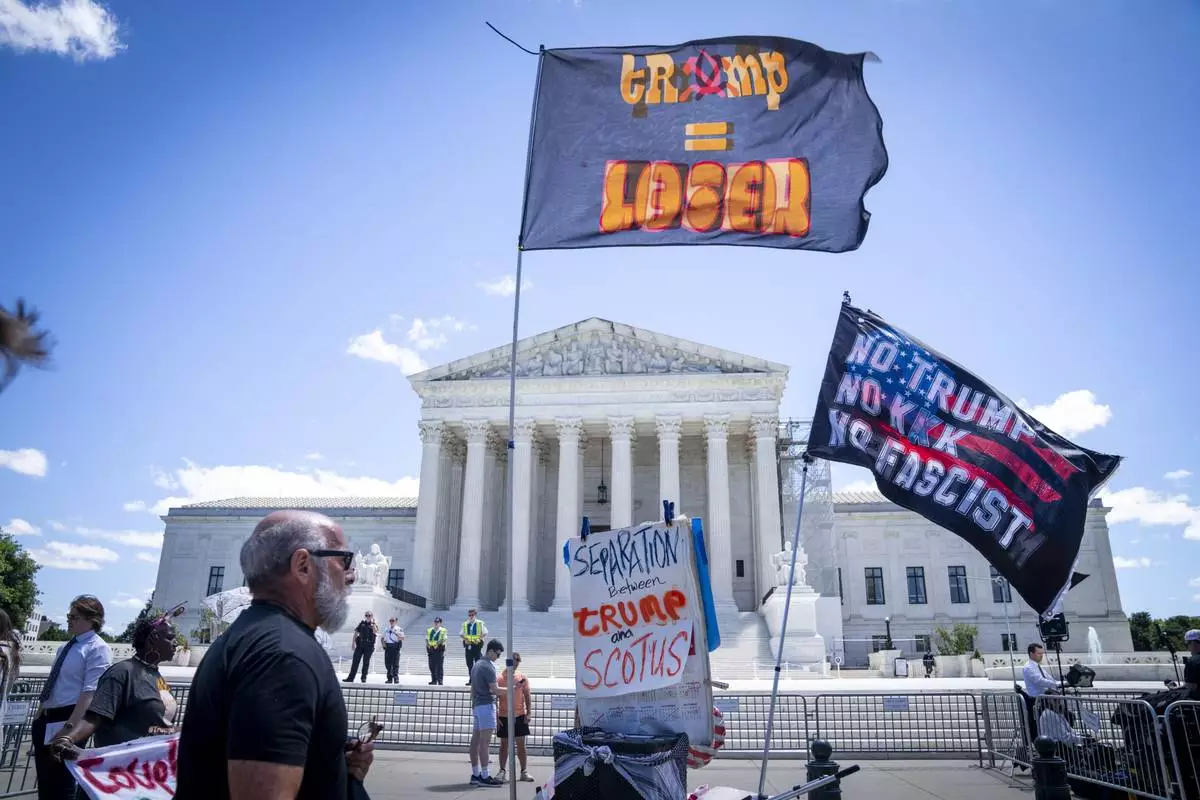
People protest outside of the Supreme Court, Monday, July 1, 2024, after court decisions were announced in Washington. (AP Photo/Jacquelyn Martin)
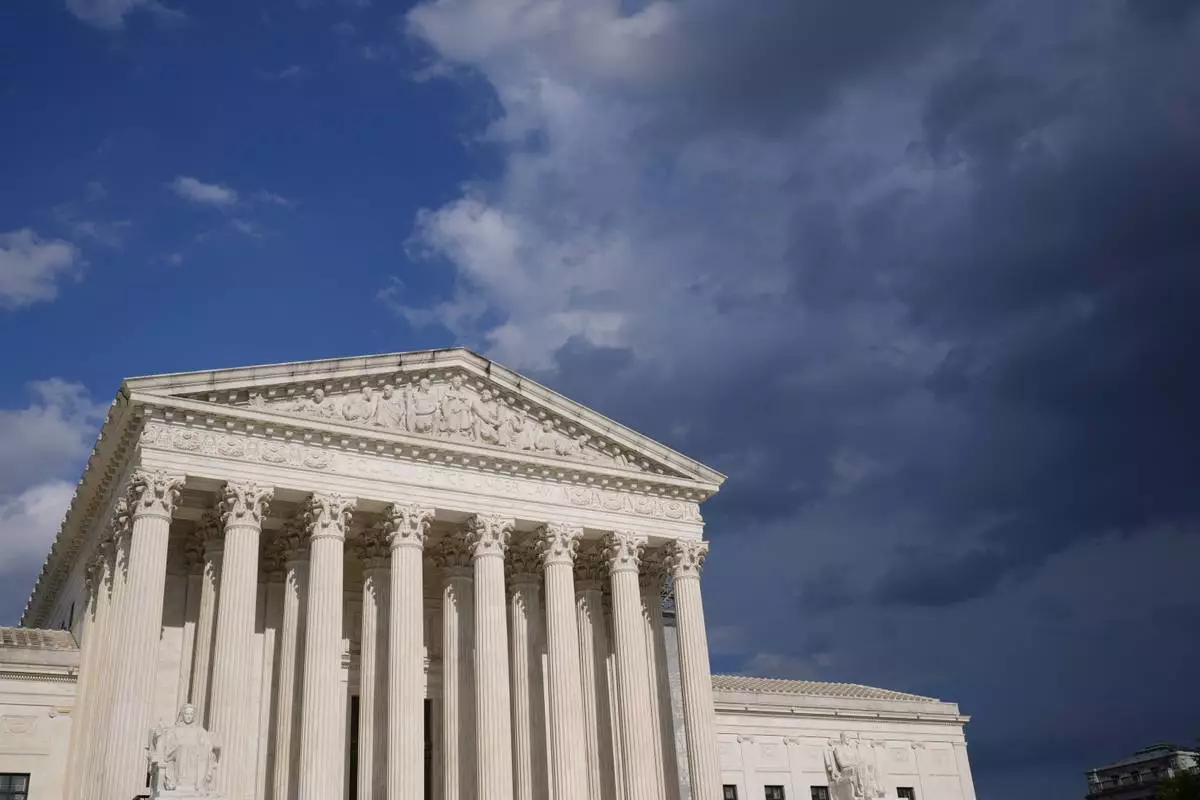
The Supreme Court in Washington, Sunday, June 30, 2024. (AP Photo/Susan Walsh)
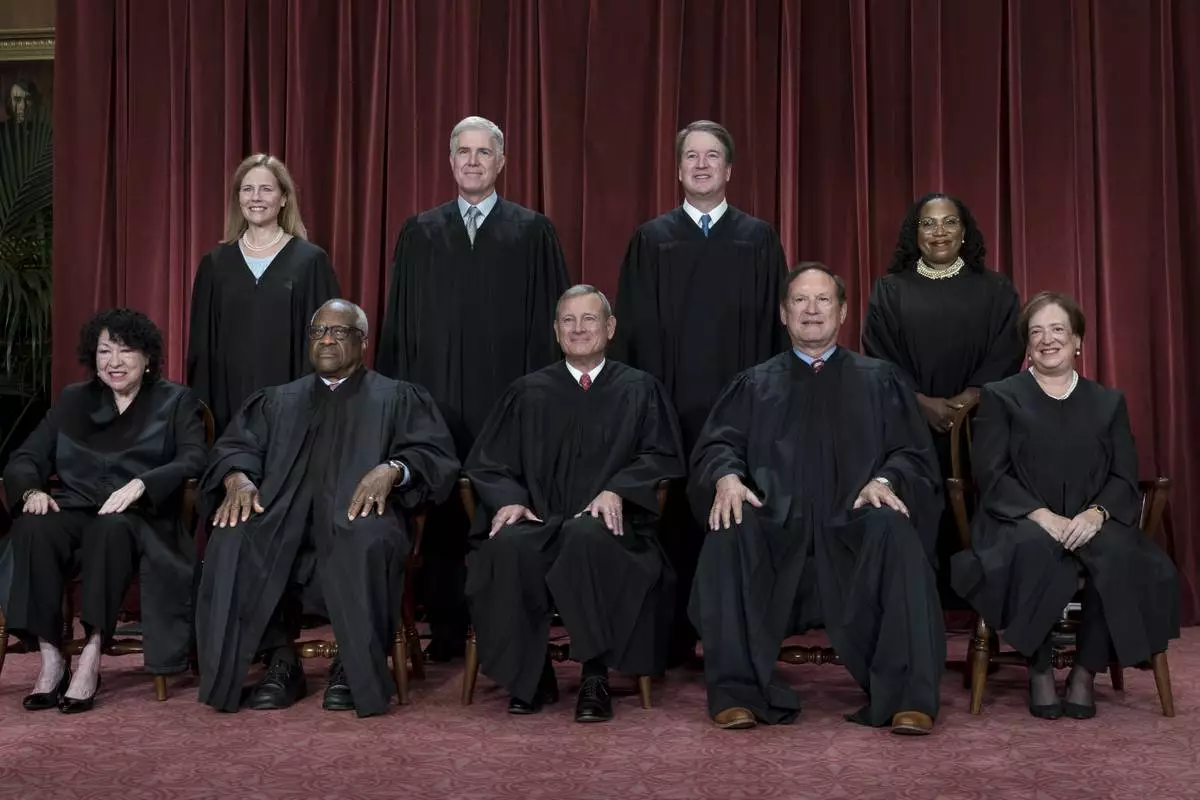
FILE - Members of the Supreme Court sit for a group portrait in Washington, Oct. 7, 2022. Bottom row, from left, Justice Sonia Sotomayor, Justice Clarence Thomas, Chief Justice John Roberts, Justice Samuel Alito and Justice Elena Kagan. Top row, from left, Justice Amy Coney Barrett, Justice Neil Gorsuch, Justice Brett Kavanaugh, and Justice Ketanji Brown Jackson. The Supreme Court justices will take the bench Monday, July 1, 2024, to release their last few opinions of the term, including their most closely watched case: whether former President Donald Trump has immunity from criminal prosecution. (AP Photo/J. Scott Applewhite)


